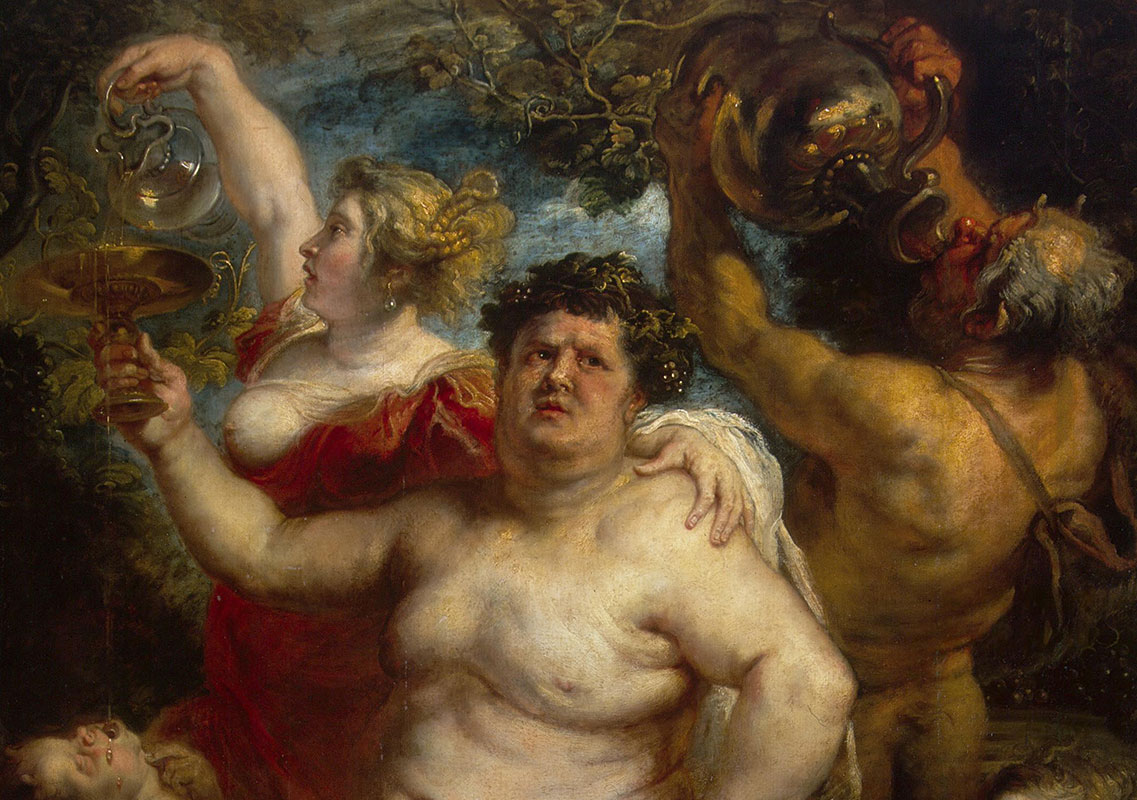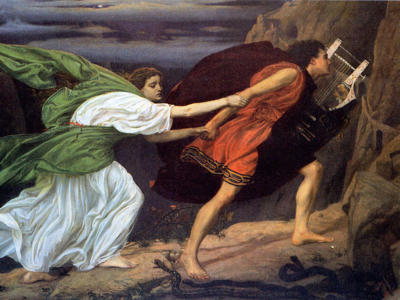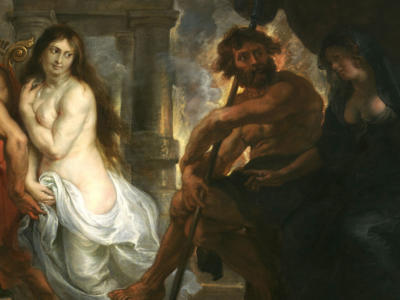A guide to the gods of ENO’s Orpheus Series
Classical mythology is at the heart of English National Opera’s Orpheus Series, but how well do you know the deities behind the story? Do you know your Diana from your Dionysus? What about your Juno from your Jupiter? If you’re drawing a blank, take a read of our handy guide to the gods behind the Orpheus myth below!
Orpheus and Eurydice: Love
Orpheus in the Underworld: Jupiter, Juno, Pluto, Mars, Venus, Diana, Cupid, Dionysus
The Mask of Orpheus: Hades, Persephone, Hecate, Charon, Apollo, Dionysus
Jupiter (Orpheus in the Underworld)
Whom Jupiter would destroy he first drives mad.
-Sophocles
You might know the planet, but don’t let Holst’s interpretation sway you – Jupiter is kind of a big deal.
Known by the Greeks as Zeus, this Roman king of the gods and skies is known for swaying from the Olympians for some sexual gratification, wooing mortals across the land. In this respect, Offenbach’s depiction of Jupiter is right on the money. In Act I, the collected gods of Mount Olympus mock Jupiter for his habitual mortal-loving, and his interest in Eurydice is one of the main plots of the opera.
Widely worshipped by the Ancient Romans, this sky-father came into power after usurping his father Saturn (who was later associated with the Greek god of time, Chronos), and held a huge sway in the religions of the time. The Romans used the eagle – a symbol widely associated with Jupiter – as a standard (a flag bearer), with each Roman legion having one eagle-bearer.
Willard White played Jupiter in Orpheus in the Underworld, with Robert Hayward stepping in for select performances.
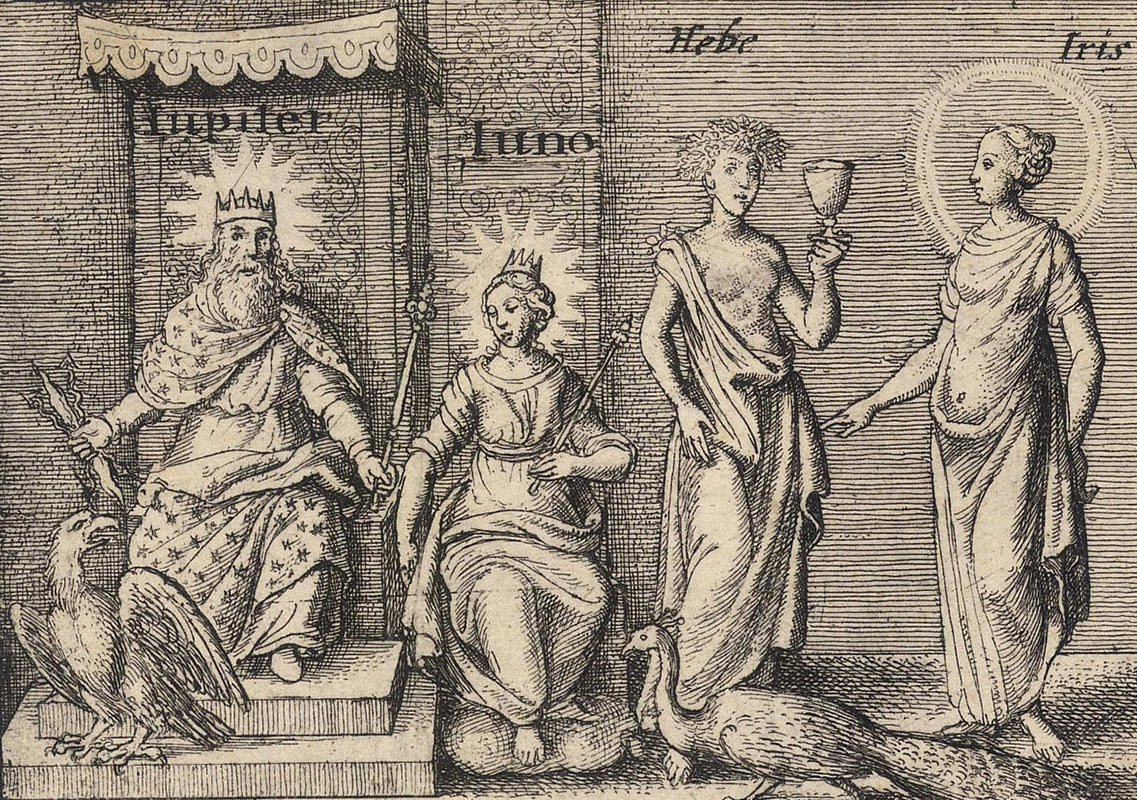
Juno (Orpheus in the Underworld)
That was Hera. Her Majesty, the Loose Cannon.
-Rick Riordan, ‘The Lost Hero’
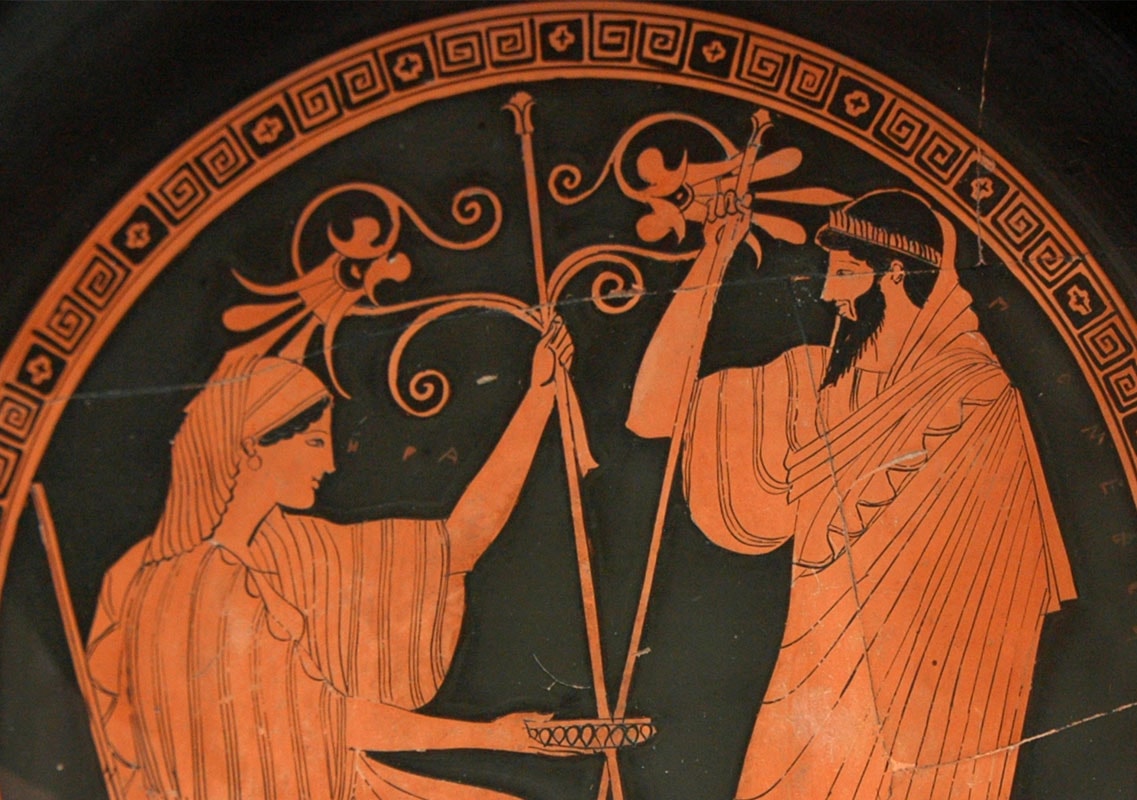
As the goddess of marriage, queen of the gods and most significantly Jupiter’s wife, you wouldn’t be wrong if you said Juno isn’t very happy about Jupiter’s adulterous pastimes.
The patron goddess of Rome, the domains of Juno (known as Hera in Greece) should not trick you – she hides her warlike and strict demeanour within. Behind every great man is an even greater woman, and the same applies for the gods!
Funnily enough, the Juno we meet in Orpheus in the Underworld doesn’t really approve of Jupiter’s newfound admiration of Eurydice, nor does she particularly appreciate his lengthy history of mortal women he’s wooed. She joins the other gods in their vocal revolt against Jupiter’s reign, bringing up his many wrongdoings he’s committed previously.
Pluto/Hades (Orpheus in the Underworld/The Mask of Orpheus)
Avarice drags Pluto himself out of the bowels of the earth.
-Karl Marx
It may not be a planet anymore, but our favourite little dwarf planet was named for one of the most important gods in the Roman pantheon.
The god of death acts sneakily in Orpheus in the Underworld, masquerading as Aristaeus at first before taking Eurydice away to the Underworld – not that Orpheus is too bothered about it!
Confusingly, the Greeks knew Pluto as Hades, but also the underworld itself as Hades. This may have been what led Offenbach to use the Roman names for the gods, as Hades taking Eurydice to Hades to be Hades’s prisoner may have been a tad confusing!
Hades also makes an appearance in The Mask of Orpheus, played by the same actor as the Mythical Aspect of Orpheus. Maybe not all of our Orpheuses wants Eurydice back after all…?
Pluto was played by Alex Otterburn in Orpheus in the Underworld, whilst Orpheus the Myth/Hades was portrayed by Daniel Norman in The Mask of Orpheus.
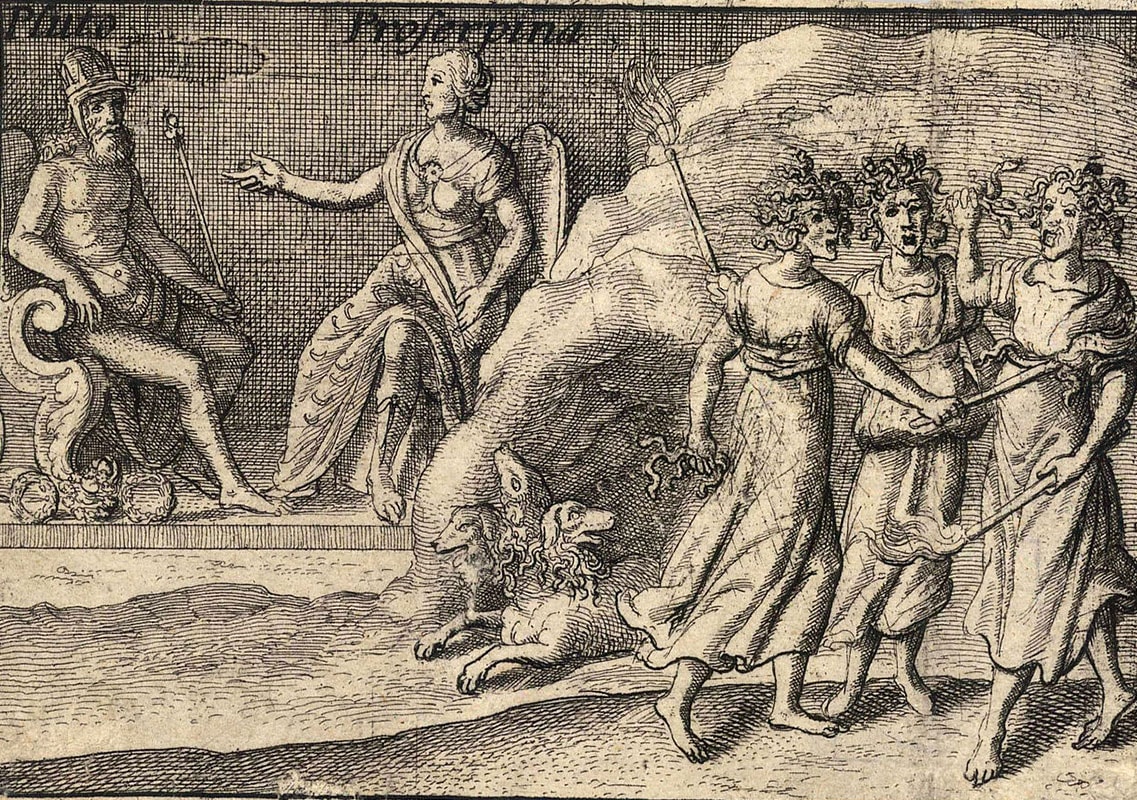
Mars (Orpheus in the Underworld)
Come, warlike Mars; lay down thy shield and spear for a brief space.
-Ovid, ‘Fasti’
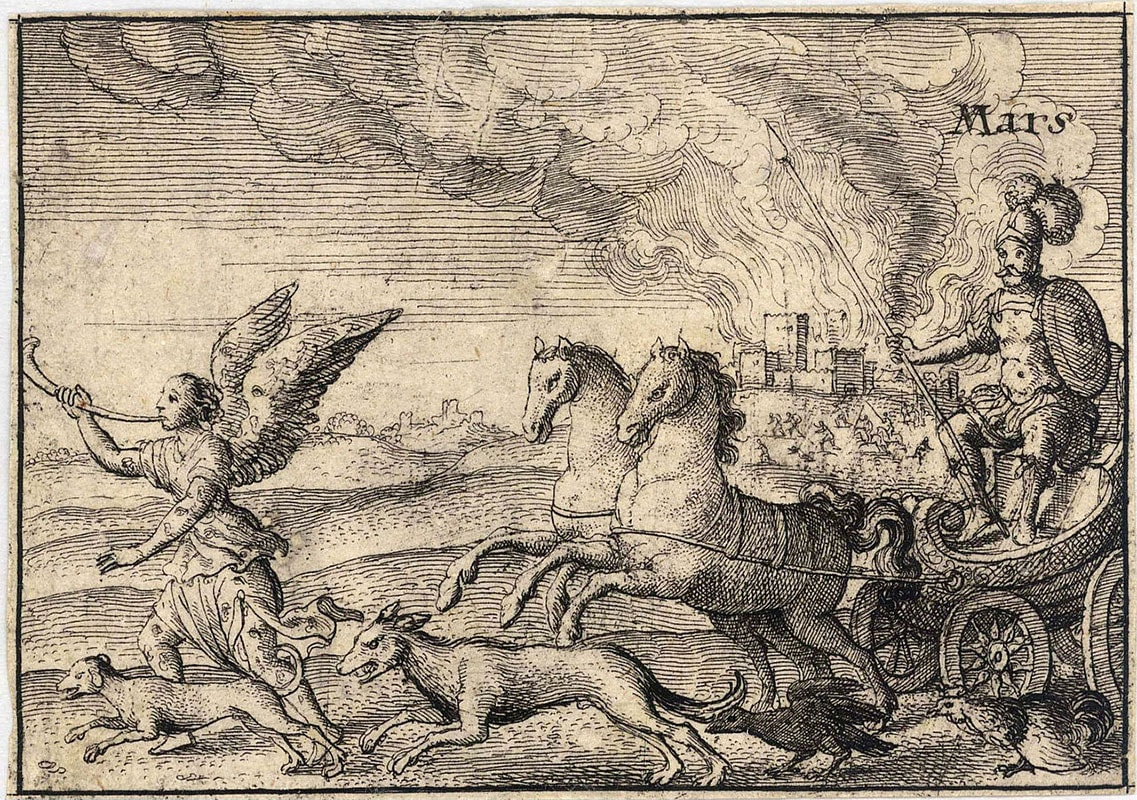
No, this isn’t your favourite chocolate bar or planet, it’s the Roman god of war for which they’re named.
Mars, naturally, was widely worshipped by the military factions of the Romans, with the month of March named for him, as this was the month in which the season for farming ended, and warfare began. Considered second in importance to Jupiter, Mars’s popularity was a testament to the Roman Empire’s quick expansion and military prowess.
Mars makes an appearance amongst the gods of Olympus in Orpheus in the Underworld, joining Venus and Cupid in the ‘I am Venus/Cupid’ aria in Act 1. Whilst conflict permeates the opera, Mars keeps to the background, watching the bickering and his influence on events…
Venus (Orpheus in the Underworld)
Venus favors the bold.
-Ovid, ‘Metamorphoses’
Whilst still incorporating elements of her Greek mythology counterpart Aphrodite, Venus is perhaps the most original entity with the least amount of crossover.
The goddess of love, sex, beauty and victory, Venus was thought to be the ancestor of Roman people (rather narcissistically!) through her descendant Aeneas, fleeing the siege of Troy to Italy. As with many gods, she was the subject of plenty of festivals, largely in the month of April, due to the springtime association of her domain.
One of the gods found on Mount Olympus, Venus and Cupid introduce themselves as they awake to the second scene of Orpheus in the Underworld. She later mocks Jupiter’s many mortal ‘ventures’, using her knowledge of his scandalous acts to deliver a barbed aria alongside Cupid and Diana.
Fall in love with our Venus for Orpheus in the Underworld, Judith Howarth.
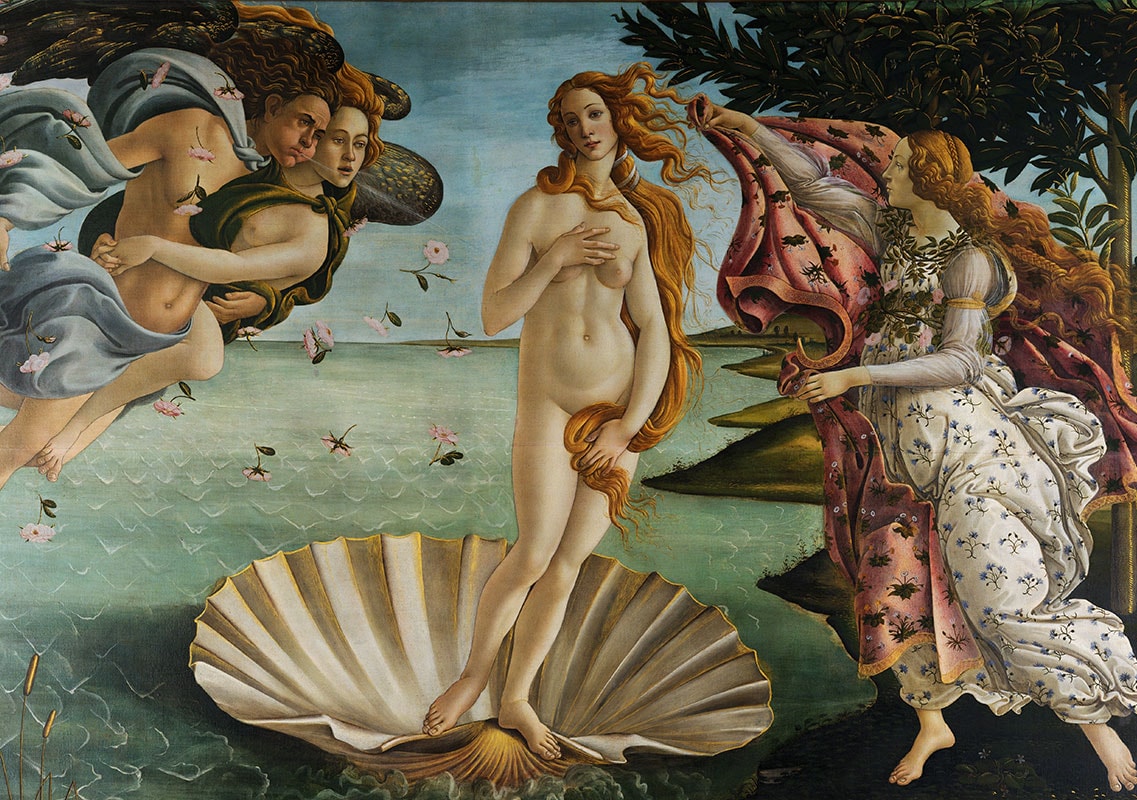
Diana (Orpheus in the Underworld)
The Moon! Artemis! the great goddess of the splendid past of men!
-D.H. Lawrence
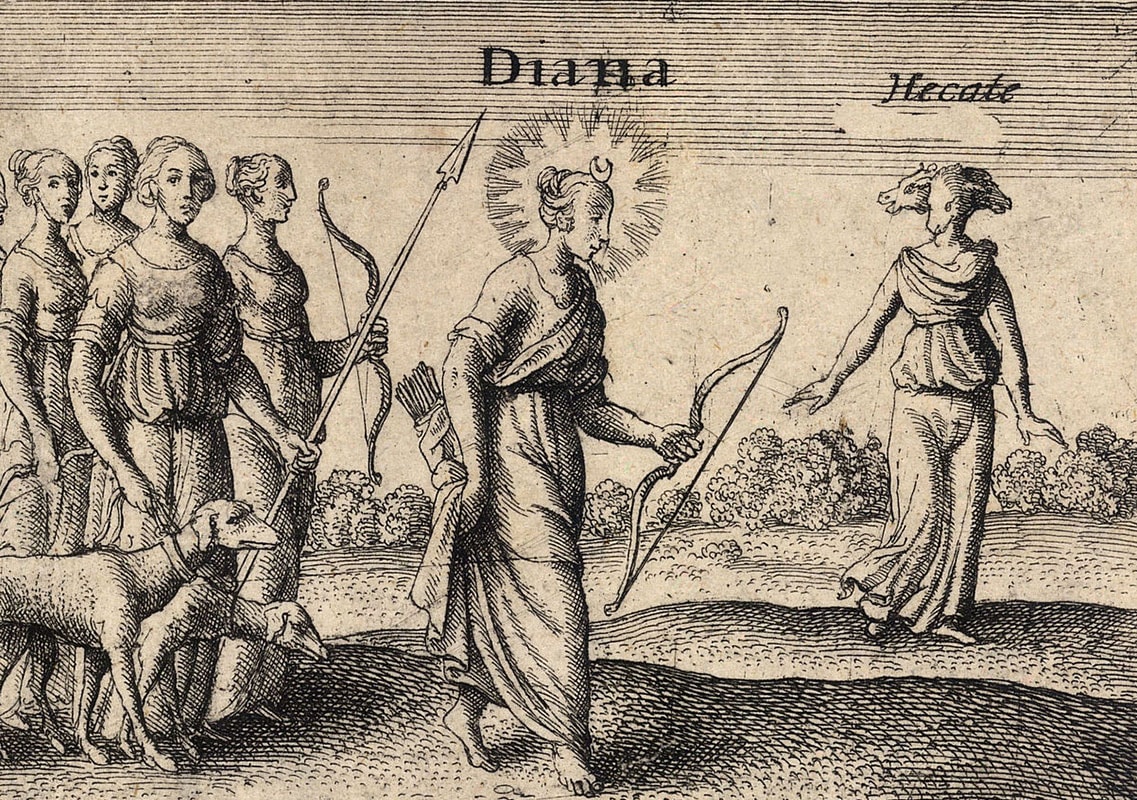
Known as Artemis to the Greeks, Diana is the maiden goddess of childbirth and women, associated with the Moon and the hunt. The twin sister of Apollo, she is often depicted with her silver bow aside her tamed hunting beasts.
Worship of Diana in Rome likely started in 550 BC, and her most famous myth entails the goddess turning the young hunter Actaeon into a stag, as punishment for witnessing Diana bathing naked. In Ovid’s retelling, Diana’s dogs then proceed to tear the deer apart.
As might be expected from Offenbach’s tongue-in-cheek take on myth, Diana presents herself in Orpheus in the Underworld as the chaste huntress and goddess, but in reality seems to be far from it. She laments her current suitor Actaeon’s absence, whom Jupiter has turned into a stag to ‘protect her reputation’. As if that’ll stop her!
Idunnu Münch will be playing Diana in Orpheus in the Underworld.
Cupid/Love (Orpheus in the Underworld/Orpheus and Eurydice)
The wounds invisible that Love’s keen arrows make.
-Shakespeare, ‘As You Like It’
Cupid, the god of desire, erotic love, attraction and affection, is usually denoted as the son of Venus (naturally) and Mars, and is the Roman counterpart to the Greek deity Eros. Whilst his presence is rather widespread in myths, he normally serves to set events in motion, rather than being in the midst of the plot.
This little darling appears in two guises during our Orpheus series – Cupid in Orpheus in the Underworld, and Love (alternatively titled Amor in the original French) in Orpheus and Eurydice.
Cupid’s role in Orpheus in the Underworld is playful to say the least – we first meet him as he returns from an amatory night-time escapade, before playing mischief with the gods (and later Eurydice) throughout the rest of the opera.
If we look at the more refined take on the god of Love in Gluck’s Orpheus and Eurydice, Love is the sole deity to appear in the opera, acting as the divine intervention needed to change the ending from solemn to splendid in the third act. She appears throughout, acting as the force of human nature drawing Orpheus to Eurydice, and convincing Orpheus to begin on his heroic crusade to begin with, and is deeply moved by their love for each other.
This cheeky chappie is played by Ellie Laugharne in Orpheus in the Underworld, and Soraya Mafi in Orpheus and Eurydice.
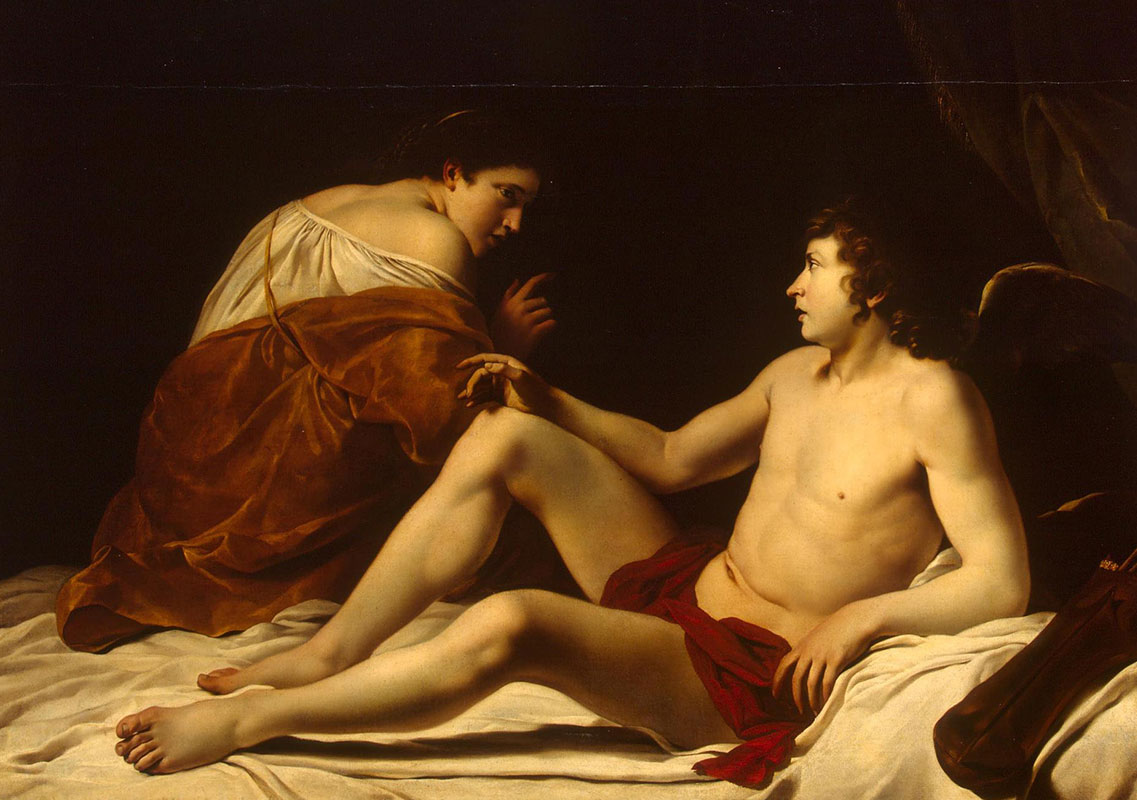
Persephone (The Mask of Orpheus)
Persephone herself is but a voice
or a darkness invisible enfolded in the deeper dark
-D.H. Lawrence
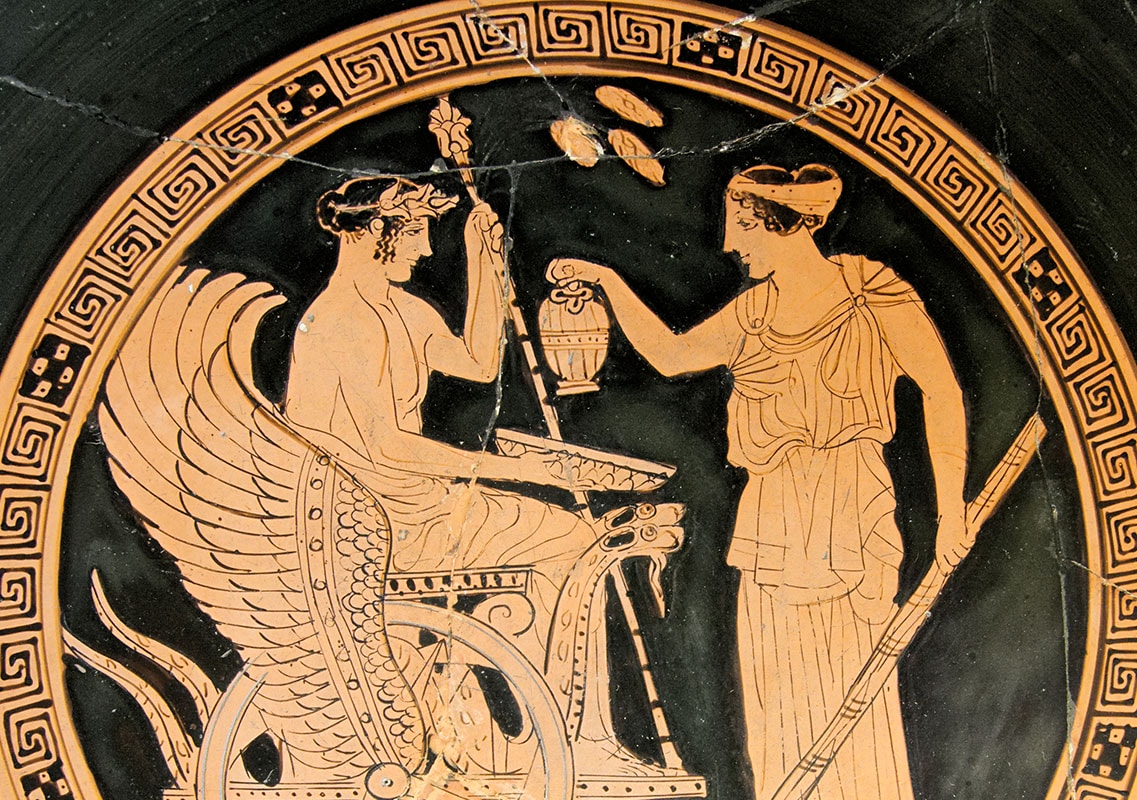
One of the most famous Greek myths, the myth of Persephone is a classic case of myths being created to explain the natural world.The daughter of Zeus and Demeter (goddess of harvest, agriculture and fertility), Persephone attracted the attention of Hades, who spirited her away to the Underworld to be his bride. Whilst Demeter argued for and secured her release, it came too late – Persephone had eaten a single seed of a pomegranate, and all food in the Underworld is cursed so that anyone who eats it will be forced to reside there.
Distraught, Demeter asked Zeus to help, and he persuaded Hades to let Persephone return to the normal world for six months of the year. Whilst Persephone visits, Demeter is happy, and the plants bloom in response – but when Persephone is forced back to the Underworld to visit her husband Hades, Demeter becomes withdrawn, refusing to give her fertile power to the land. Hence, the seasons of the year.
Persephone appears in Harrison Birtwistle’s The Mask of Orpheus, as one of the ruling trio who greet Orpheus in his travels in the Underworld, alongside Hades and Hecate. Portrayed by the same performer as Eurydice the Myth, Persephone could be said to be that side of Eurydice that can never leave the Underworld, now she’s there…
Claire Barnett Jones performed as Persephone and Eurydice the Myth in The Mask of Orpheus.
Hecate (The Mask of Orpheus)
And I, the mistress of your charms,
The close contriver of all harms
-Shakespeare, ‘Macbeth’
A particularly important deity to the Ancient Greeks, Hecate (also spelled Hekate) has a long standing legacy in religious rituals stretching to modern day pagan practices.
The goddess of magic, witchcraft, crossroads, and most notably for our tale, necromancy (communication of the dead). Athenians held idols of Hecate at the gates of cities, as well as in households, to protect from malicious outside forces. She also represents something of a triple threat, in the most literal sense – a goddess of three aspects: maiden, mother and crone, and therefore past, present and future.
In the context of The Mask of Orpheus, Hecate masquerades as The Oracle of the Dead to advise the grieving Orpheus on what to do. Her true personage is truly revealed when Orpheus comes before the ruling trio of the Underworld: Hades, Persephone and Hecate, goddess of the witches.
The enigmatic Hecate was played by Claron McFadden in The Mask of Orpheus.
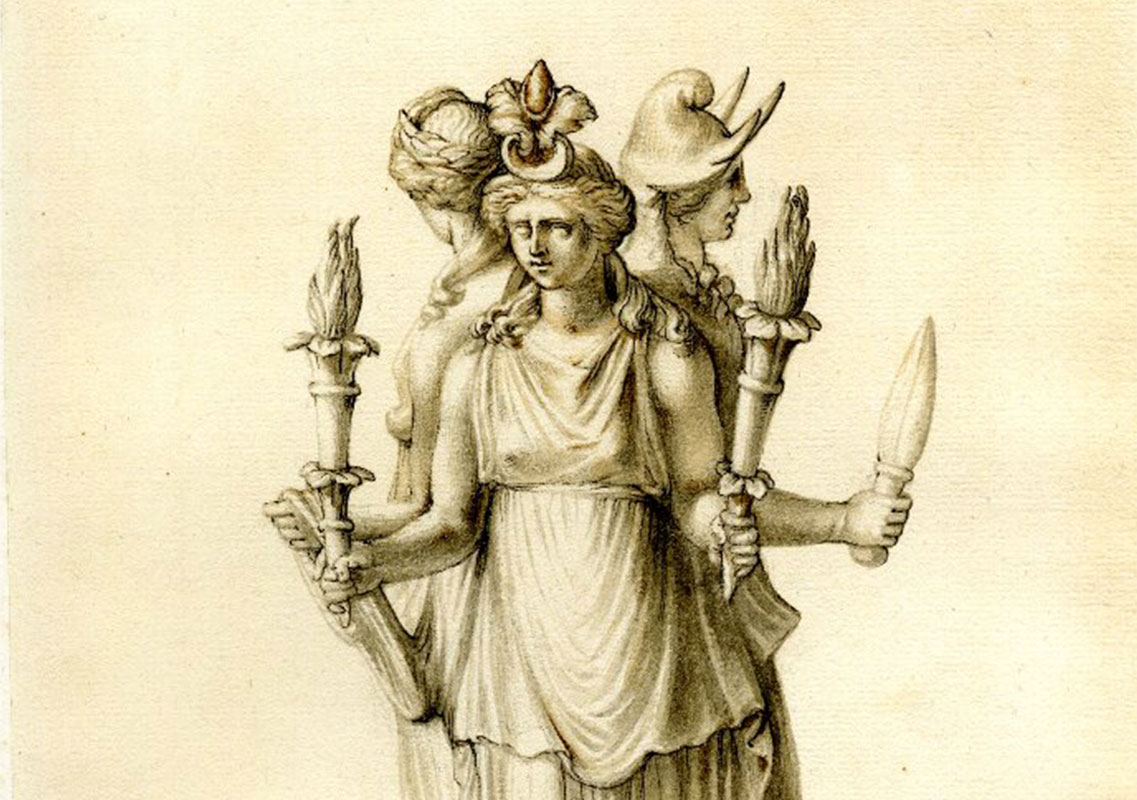
Charon (The Mask of Orpheus)
Come sail away come sail away
Come sail away with me
-Styx ‘Come Sail Away’
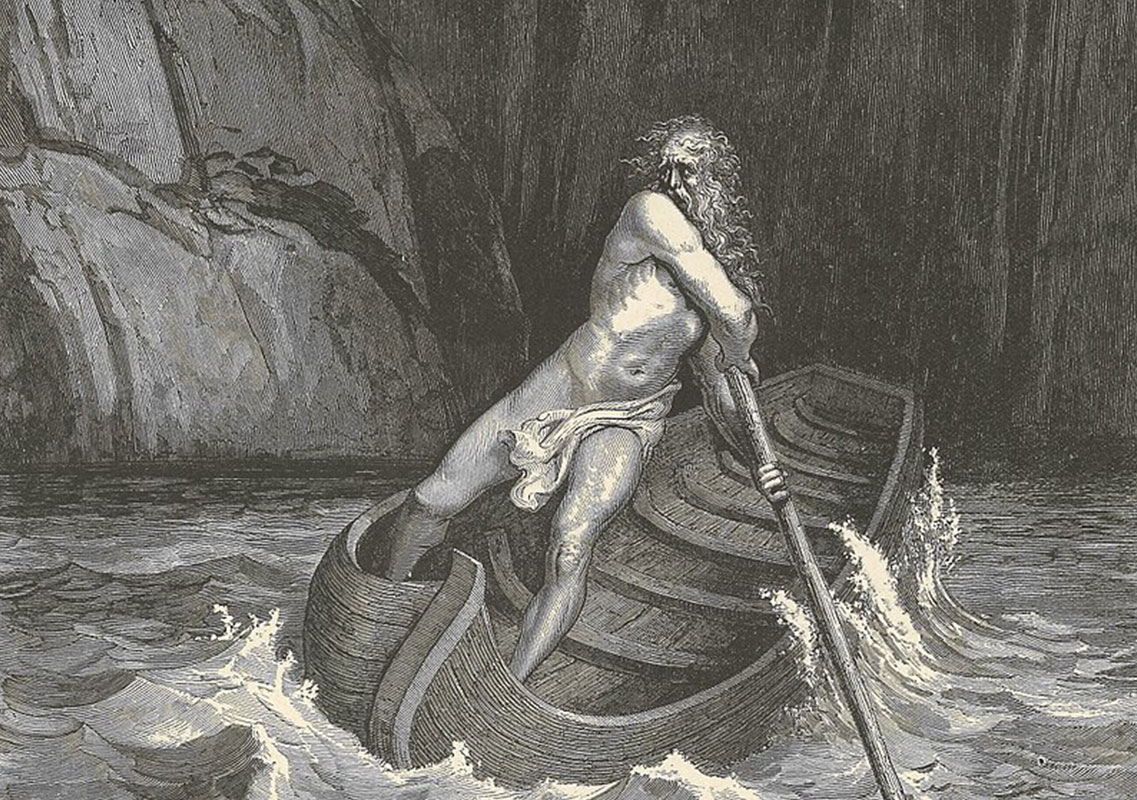
Whilst not necessarily regarded as a god, Charon is a key figure in Greek classical mythology.
Acting as a psychopomp, Charon is the ferryman of the dead, shipping the souls of the deceased to the Underworld along the River Styx. In many Ancient Greek traditions, the dead were buried with coins covering their eyes, intended to be the ‘payment’ for Charon.
Charon appears in The Mask of Orpheus, depicted by the same singer as Aristaeus the Myth. In many senses, this dual performance makes sense: at the end of Act I, Aristaeus is the one to tell Orpheus of Eurydice’s death (while omitting his adulterous influence on her). His actions leads to Orpheus travelling to the Underworld in search of Eurydice – a clear parallel between the Aristaeus of Mask and the role of Charon in myth.
Take a trip on the Styx with Simon Bailey, who portrayed Charon and Aristaeus the Myth in The Mask of Orpheus.
Apollo (The Mask of Orpheus)
Joy to the joyous Delphic deity
-Dante, ‘Paradiso’
Apollo is a god of many attributes. Strongly tied to the arts due to his relationship to the Muses, he is also associated with the Sun (whilst his twin sister Artemis is tied to the Moon), archery, healing and knowledge.
He is the god of music, even though it was Hermes who created the first lyre. The Oracle of Delphi (Pythian) had Apollo as their patron, and they were the central figure in Greece’s religion, thought to be communicating directly with the gods.
In recent times, Apollo was the god used by Friedrich Nietzsche to represent rational thinking, order, logic and purity, diametrically opposed with Dionysus.
In The Mask of Orpheus, Apollo’s appearances bookend Orpheus’s tale – in the prologue, Apollo presents his lyre to Orpheus, giving him the gift of music Orpheus is renowned for, while in Act 3 Apollo appears, jealous to the skull of Orpheus’s newfound ability to prophesy, and silences the skull to remain the most famous oracle.
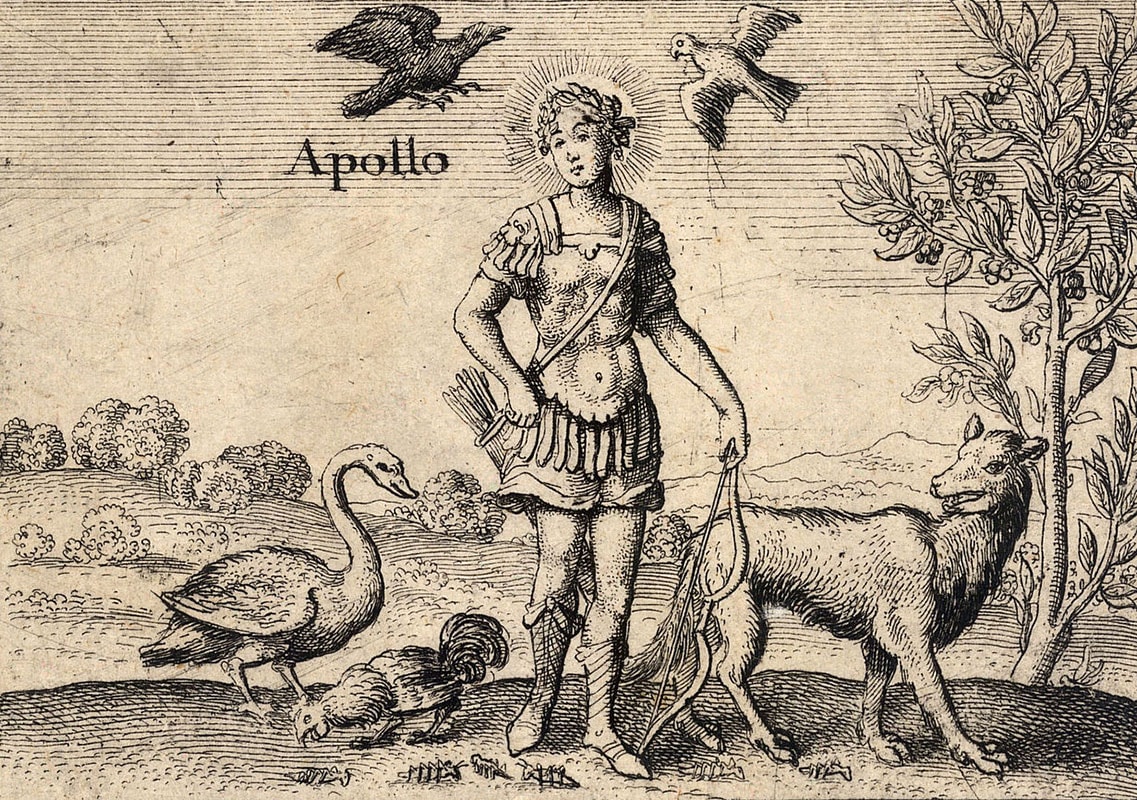
The opposite of Apollo in every sense, Dionysus is the force of chaos, being the god of wine, fertility and most importantly, ritual madness.
In recent times, Dionysian philosophy has become synonymous with the irrational, emotional and creative sides of the mind.
The cults that formed around the worship of Dionysus looked towards the more savage nature, with practices focussing on blood-offerings and sacrifices, with Dionysus acting as the bridge between the living and the dead.
Whilst Dionysus does not directly appear in The Mask of Orpheus, his followers make a key appearance in Act 3. When the myth begins to unravel, one of the moments of time we see is Orpheus being sacrificed to Dionysus by a pack of worshippers.
In much the same sense, Bacchus (the Roman aspect of Dionysus) makes an appearance by proxy in Orpheus in the Underworld, with Eurydice disguising herself as a ‘Bacchante’ in Act 2 to disguise herself in Olympus.

